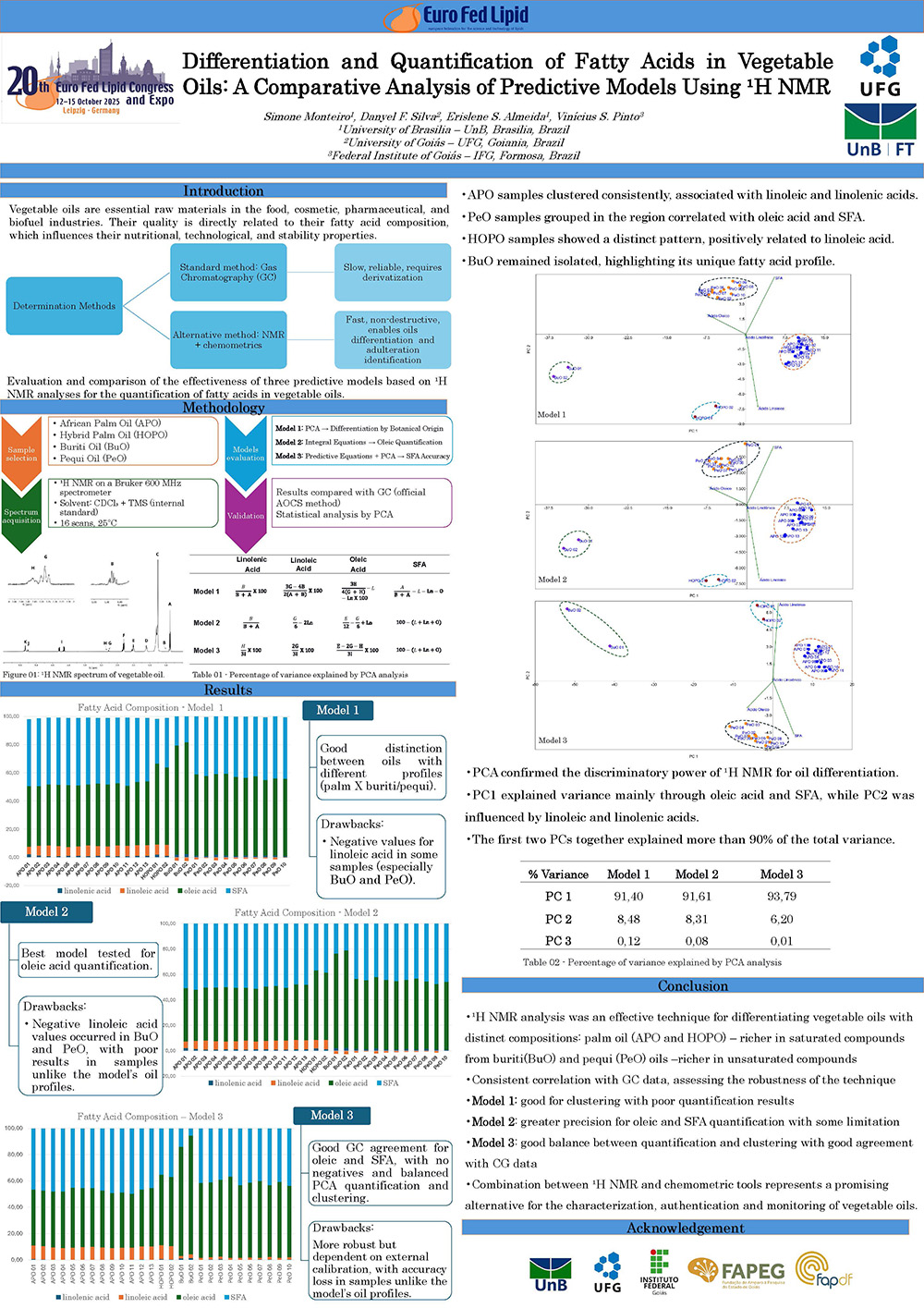The fatty acid composition is a key parameter for assessing the quality and origin of vegetable oils. The American Oil Chemists’ Society (AOCS) recommends a standard gas chromatography (GC) method for this purpose. However, due to its drawbacks—such as high cost, the use of toxic solvents, and the need for sample derivatization—many researchers have sought alternative techniques.
In this context, proton nuclear magnetic resonance (¹H NMR) has emerged as a promising, rapid, and non-destructive approach. This study conducted a comparative evaluation of three models available in the literature for quantifying fatty acids using ¹H NMR spectra. Their performance was assessed by comparing their results with reference values obtained via GC. Samples of African palm oil – Elaeis guineensis (APO), high-oleic hybrid palm oil – Elaeis oleifera x Elaeis guineensis (HOPO), buriti oil – Mauritia Flexuosa (BuO), and pequi oil – Caryocar brasiliense (PeO) were analyzed. The first model, based on principal component analysis (PCA) of 192 samples from 13 oil species, was designed to differentiate oils according to botanical origin and achieved clear group separations. The second model employed equations derived from the integration of specific spectral regions to estimate saturation levels and oleic acid content in citrus seed oils, demonstrating high accuracy in absolute quantification. The third model used the ERETIC technique with external caffeine calibration in 18 oil samples, enabling direct quantification validated through PCA. Overall, the ¹H NMR technique proved to be fast, non-invasive, and strongly correlated with GC results—particularly for oleic acid and saturated fatty acids (SFA). It effectively differentiated palm oils (APO and HOPO), which are richer in SFA, from BuO and PeO, which contain higher oleic acid levels. Among the three models, the third provided the best balance between quantification and discrimination. The first model was superior for distinguishing botanical origins, while the second offered the most accurate quantification of fatty acids. PCA confirmed consistent groupings, highlighting the potential of ¹H NMR combined with chemometric tools as a robust method for characterizing, authenticating, and monitoring the quality of vegetable oils.
